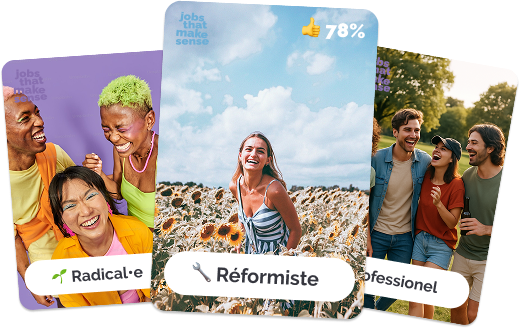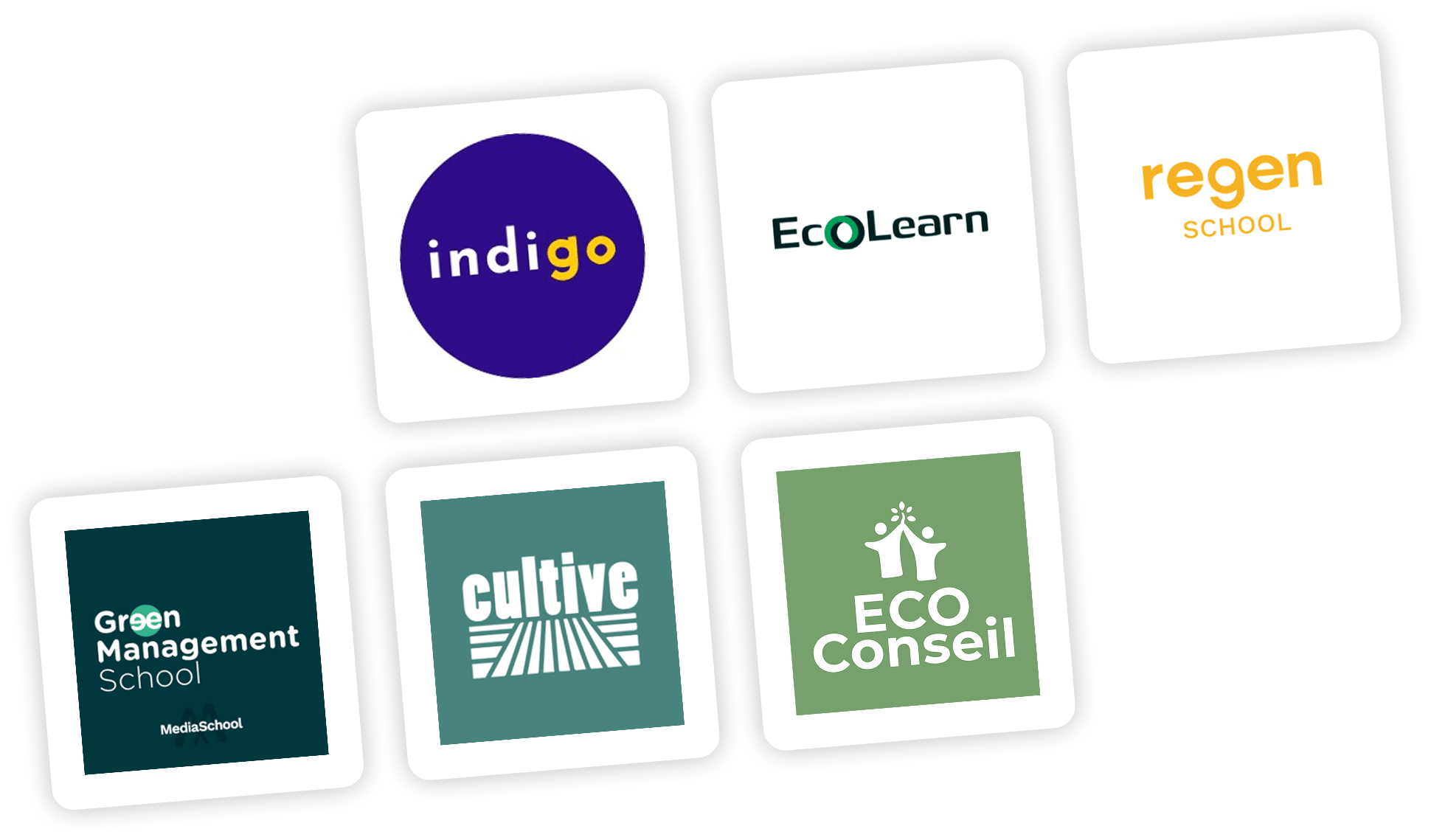Do you have to retrain to find an impact job?
By Laurent Polet, Founder of Primaveras.
Whoa! My name is Laurent. I'm not going to start this article like everyone else by introducing myself by my job, and this to better show you by example if you have to retrain to find an impactful job!
My passion is transmission: I like to teach, I like to help people grow by sharing not only knowledge, but above all convictions. And pedagogy contains great tools that I have trained myself for. Moreover, it happens that my current commitment is to repair the damage to a world of work that is losing its mind. Of a world of work that damages the planet, but also of a world of work that damages people, ... which we too often tend to forget. Finally, to end this personal presentation, through my professional background, I have developed advanced skills in team management and business management, and I have always been placed in a situation of very high autonomy. It is therefore for all these reasons that I have the chance to work today with an impact!

I have a real impact job!
So what is my job you ask? I am a professor of management and a business leader. I teach human issues in an engineering school, Centrale Supélec, and I run an organization specializing in supporting professional changes for executives in search of meaning at work.
For me, these two jobs are one and the same. They tick all the boxes for my motivation, as well as my desire for impact. Because I participate through these professions in helping people to develop in their professional life: whether it is with future graduates who are sensitive to people, or whether it is for more experienced people, eager to act for the meaning of their work during professional life.
If I started this presentation from this very personal angle, it is not out of pride, and to set myself as an example of success and impact. This is to show you that the notion of impact job depends on everyone. So it depends on you, only on you… in other words, it doesn't depend on others. Because, before you ask yourself if you should change jobs to find a job that has an impact, it is essential to ask yourself what "impact" means to you. And it's not as simple as it seems!
Do you want another eloquent example of this statement? I think so, because you wonder why I haven't yet talked about ecological transition at this stage? So let's talk about it!
This is the true story of Jérôme. Jérôme was assistant project manager in an international NGO. Passionate about travel, convinced green, this young hydraulic engineer worked in Senegal on the deployment of alternative irrigation systems with the aim of training populations in autonomy in their drinking water supply. Great ! What a fabulous impact job, isn't it?
The notion of impact should not be limited to the visible part of the job
Not really for Jérôme, who resigned from his post. He was tired of his management, which asked him from France to periodically submit accounting and technical analyses. So much so that he no longer had time to devote himself to the field. So he said stop, because his motivation was not to do technical and budgetary studies - which he could have done from anywhere - but to work in the field in contact with people. It is for this reason that I met Jérôme, who joined a program of the Primaveras School to solve this dilemma of having found the impact job of "his life",... and then finding himself to have left him!
Let's analyze these two examples that I shared to learn from them on the option of retraining as the answer to the quest for an impact job.
First, the notion of impact should not be limited to the visible part of the job, that is to say its social and ecological utility. This visible part of the job is naturally an essential driver for people like you who want to act against planetary disturbances and social disorders. But too often there is a tendency to associate positions and functions through the activity of the organization in which they are carried out. And by doing this, the richness of a work is considerably reduced! Our irrigation project manager is not to be confused with the NGO that employs him. Jérôme does not have an impact job for the sole reason that he works in a humanitarian organization. Our Jérôme also needs to be given a work context and responsibilities that fit with his personality and his aspirations to feel that he has "an impact". And without this adequacy for him of contact with indigenous populations, Jérôme's work has no meaning, no impact.
This demonstration will certainly seem counter-intuitive to you. This is because in France we too often identify the organization with the person. If you work in an association, it is necessarily virtuous, and if you work in a large group, it is necessarily sclerosing. If you work at Total, you're guilty, and if you work at makesense, it's happiness (by the way, it's true ☺ ). In short, I invite you to avoid all these simplistic approaches and these labels because they prevent you from seeing with lucidity. I meet people who are unhappy at work in associations, and others who are perfectly fulfilled in an international organization… whatever the purpose of their activities. In short, it is not enough to work in a so-called "impact" organization to have an impact!
Having an impact also means being "In Your Place"
Let's come to the second point. What is the impact for you? To this question you are probably answering to act for the ecological and social transition. But is it therefore necessary to go green, or to convert to agro-ecology, for example? If for some people, such conversions will be the right answer to their desire for impact, there are many ways to have an impact. Having an impact can also mean being "in your place", i.e. being able to deploy your talents in the right place, in contact with the right people, in a work environment that suits you well.
Impact - in the sense of changing the world - can develop in various forms of work. Let's take the example of the possible ways to limit global warming, you could deploy your impact on several levels: by educating children in ecological behavior in the use of energy resources within associative structures, by selling to individuals solutions for measuring and optimizing electrical consumption in digital start-ups, through research work in an academic laboratory to improve the yields of solar collectors, through lobbying with states in government bodies on regulation production systems, … but also quite simply by piloting internal projects with colleagues to reduce consumption and travel, within your own company! All these options allow you to mobilize your best skills, with audiences and in a context that best suits you.
The initial question was: should you retrain to find an impact job? Norman's answer will not have escaped you! But I really hope that you will have understood that to fork or not to fork is not the alternative. You will only find the right answer by making the effort to ask yourself what for you - and for you alone - means "an impact job".
To return to my personal case in conclusion, I would say that my impact thanks to the Primaveras School is to transmit a serious method to respond to eco-anxiety at work with the best possible discernment, and not to tackle too hastily when work occupies an important place in one's life!
Because an unhappy person in a virtuous organization will have no impact...



